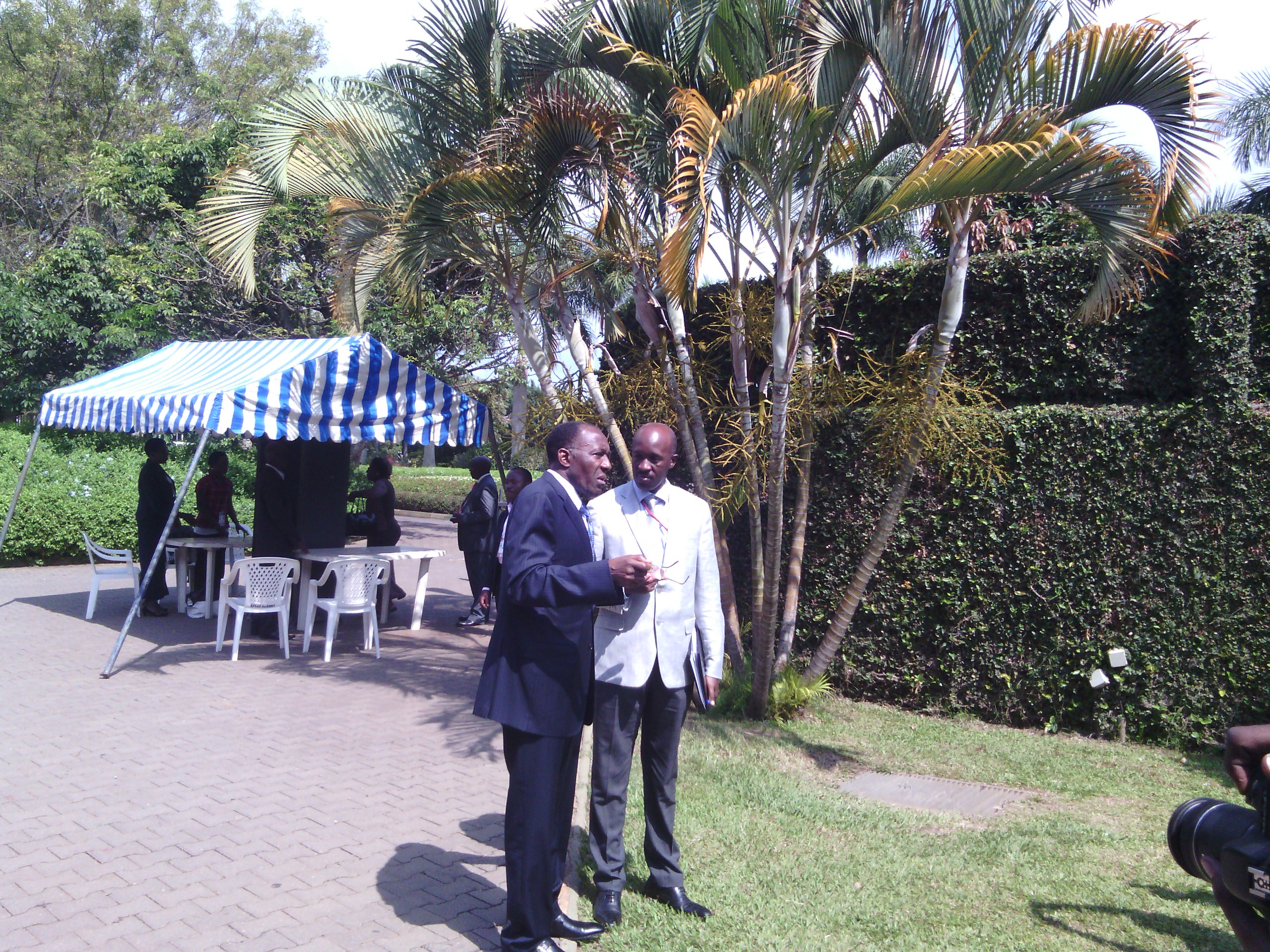The Government of the Democratic Republic of the Congo and the M23 rebel group have renewed peace talks in Kampala, Uganda, under pressure from the regional facilitating body the International Conference for the Great Lakes Region, or ICGLR, and the United Nations Special Envoy to the Great Lakes Region, Mary Robinson. This is in advance of the upcoming U.N. General Assembly meetings in New York next week. As a result of an extraordinary ICGLR Heads of State Summit in Kampala on September 5, both parties were given 14 days to resume talks and reach an agreement that would result in M23 laying down its arms in eastern Congo.
After a slow start, delayed by late arrivals from the Congolese delegation, both parties began private consultations with the ICGLR facilitating team, chaired by the Government of Uganda. Following days of individual meetings with both parties, the first face-to-face plenary session was held on Tuesday, September 17, with only five days remaining within the 14 day deadline.
Prior to the meeting, the heads of both delegations, Congolese Foreign Minister Raymond Tshibanda of Congo, and Rene Abandi from the M23, entered the conference area together and spoke with one another in front of press for what seemed a provocative photo opportunity. Many observers interpreted the theatrics as a signal that agreement could be within sight.

Congolese Foreign Minister Raymond Tshibanda of Congo, and Rene Abandi from the M23
At the plenary, the Chief Facilitator, Ugandan Minister of Defense Crispus Kiyonga made a statement indicating that both sides remained committed to reaching agreement. He highlighted that the parties had been covering a wide range of issues, which had been condensed into a consolidated agreement that has been reviewed by both sides and will be the basis of further negotiations between the parties. He then expressed hope that agreement could be reached within the remaining deadline.
According to Minister Kiyonga the core set of issues to be covered by the consolidated agreement include the following—most of which represent the majority of articles within the original March 23rd , 2009, peace agreement between the government of Congo, and the CNDP, the precursor movement to the M23:
- The extension of amnesty to certain individuals within the M23.
- The release of political prisoners and prisoners of war.
- Military re-integration for M23 troops wishing to return to the Congolese National Army.
- The transformation and demobilization of M23.
- The return of refugees and internally displaced populations to North Kivu Province.
- Discussion of properties that have changed hands irregularly due to conflict.
- Progress on the implementation of the M-23 Agreement.
- Discussions on mechanisms for national reconciliation
- Discussion of the creation of a national commission of inquiry to investigate certain issues associated with conflict in eastern Congo.
- Discussions of Congolese governmental reform.
- Discussion on creating declaration of national disaster areas in DRC.
- Discussions of how an agreement should be implemented
Publicly, both parties have conveyed optimism for reaching agreement, stating they believe they can resolve the outstanding issues and that agreement can be reached in advance of the U.N. General Assembly.
However, individual consultation with members of both parties as well and outside observers and analysts tells a different story. Both sides remain far apart on core principals such as disarmament and demobilization of M23 troops, amnesty for the senior leadership of M23, and discussion on dealing with strategies to disband the FDLR and return of Congolese Tutsi refugee populations form Rwanda—recent demands made by M23 as precondition to disarmament. The M23 appears, at least rhetorically, more willing to strike a deal now that its military posture around Goma has been weakened. Conversely, the Congolese government team seems to be bolstered from recent military gains on the ground and positive international backing.
In the short term, it is difficult to determine whether or not a deal will be struck within the 14-day deadline given in advance of the U.N. General Assembly. Following today’s session there is renewed hope, that there could be some tentative agreement in advance of the General Assembly in order to allow the ICGLR and the government of Congo to arrive with something in hand. At the same time, it is likely that the talks could simultaneously be extended under the pretense that more time is needed to discuss the more contentious issues. Such an outcome would be an “everybody wins” situation for the ICGLR, Congo, the M23, and the U.N.

